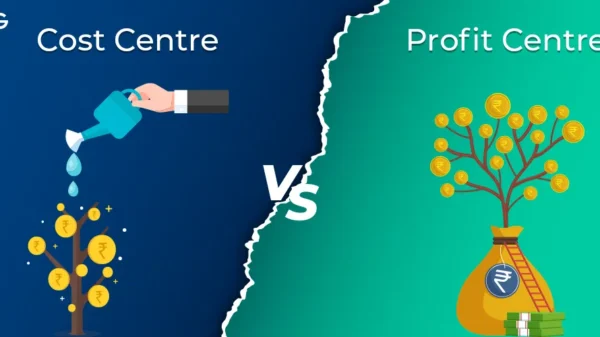Scenario: You are a managing a high performance team. Two of your team members were put up for promotion and one gets it and the other misses it by a whisker. You are now required to communicate to both your high performers about their promotion statuses.
Promotions are undoubtedly the highest points in one’s careers. Tremendous efforts go in making a successful promotion and obviously the stakes are high for both the manager and the potential promotees. For the candidate, its the culmination of multi-year efforts and entry into a new phase of career with increased responsibilities. As a manager, your leadership and mentoring abilities gets cemented if your nominees make it successfully. But the challenge you would face is that the actual number of successful promotions are always less than the nominations.
In many firms, promotions are annual affairs. The potential nominees set up stretched goals at the beginning of the year and then work towards not just meeting those objectives but excelling in them. As a manager, your role is to create space for them by removing hurdles and also giving them the required platform and visibility. When it comes to the final lap, your role is to present the case before the decision making panel at the group level especially during the cross-comparison of nominees across various teams.
When a promotion doesn’t go through, the fact that one has to wait a full year to be re-evaluated for promotion certainly is most disheartening. Its the case of so close yet so far. Seeing close colleagues getting promoted and being congratulated make the matters even worse; often leading to disappointment and attrition. So, while you had nominated him with the best of intentions, the end result might impact him and the team pretty badly if not handled properly.
It certainly doesn’t mean that a successful promotion is a walk-in-the-park for the manager. Most often, managers make the mistake of communicating a successful promotion too lightly or self-claiming the success of his promotion! Another recipe for disaster.
As a seasoned manager you need to treat both cases equally and seriously.
A successful promotion means that the nominee is already performing the next level role seamlessly. A title change (and related perks and benefits) is only a trailing indicator of his performance. But as soon as one gets promoted, he invariably falls into the bottom half (or the lowest quartile) of the next level. Though he might be protected during the first year of promotion, he will invariably be stacked against the more experienced lot in that level during the subsequent bell-curving exercises. This has to be sounded out clearly during the promotion conversation. In other words, though one milestone is achieved, there shouldn’t be any room to relax and be complacent about the achievement.
It is also important to set the next benchmark high enough for the individual to feel stretched about it. It’s as if showing a mountaineer the next peak to conquer. While doing so, you need to thoroughly acknowledge his abilities and contribution that brought him so far and identify the areas that might need to be improved to get him to the next. It will also be a good idea for him to set up new mentors and possibly new role models to emulate in his new role. It would also be expected out of you to have him be restrained in celebrations (blowing the trumpet) and be sensitive about those who may not have made it.
On the other hand, to the candidate who just missed the promotion cycle, you need to empathize with him and thank him for his efforts (and you should really mean it). During the conversation, you need to make him realize what he has achieved and learnt during the journey, though the end result might not be on the expected lines. Examples of how much more visible he is after the nominations, would help him understand that his contribution has not gone in vain.
You need to reassure him that his efforts have been thoroughly acknowledged by the management and you need to share with him the clear reason of why he could not make it. Sharing the feedback of the evaluations directly with the candidate also helps – instead of beating round the bush. Brace yourself for some tough questions on your own ability and efforts to influence the decision on his promotion. Directly or indirectly, political aspects will crop up and as a leader, you need to have ability to refocus the discussion on what next for him rather than discuss the company politics.
What you shouldn’t be doing however is to tell him that the next year promotion is a taken-for-granted thingy. He will have to earn the nomination second time as well. It will also be stupid on your part to say that his missing the promotion will be compensated via a higher pay hike or some other perks and benefits. This will dilute the purpose of promoting in a true meritocracy. He should be rewarded for his contribution that year rather than as a chocolate to a crying baby.
Similar to the successful case, even here you need to set up a stretched goal to ensure that the candidate remains motivated for the full year. Actions do speak louder than words. Setting him up at par with the promoted candidates in roles and responsibilities (sans official title) goes a long way in reassuring that the world hasn’t come to an end after his unsuccessful promotion bid.
Some subtle things to remember during this entire promotion saga. Nominating some one for promotion shouldn’t be as an incentive for performance. Unnecessary nominations should be avoided and only genuine cases really performing at the next level should be put forth. Keeping the nomination list confidential will help you immensely. Not everyone in the team need to know who is being put up for promotion. Once the promotions are announced, its always good to acknowledge and appreciate the promoted candidates openly during the team meeting or via group wide email. There shouldn’t be any mention of those who haven’t made it (for obvious reasons). Last but not the least, people get promoted because of their own commitment and hard work. You are only a facilitator in the process. So, it will be silly for you to brag about your own success-mantra and ability to get people promoted under you :). On the contrary, you need to be more restrained and start sharpening your skills to manage promoted people who will get more demanding over time!
A final parting thought! What would you do if none of your nominations get through (in spite of some real star performers) and your team members start moving out having lost trust in your leadership :)!!! ???
(published 9th Oct 2015)






